Myanmar escalation: Locals say military forces burned down village
Violence is still plaguing Myanmar months after the country's military overthrew the civilian government by staging a coup. In their latest attempt to suppress public resistance, security forces have reportedly burned down most of a central village.
Several villagers, who spoke on condition of anonymity, told Reuters on Wednesday that security forces set fire to scores of rural homes after clashing with local opponents of the junta in Kin Ma, a village in Magway Region a day earlier
Two people are known to have burned to death.
The victims were elderly residents who had been unable to flee their home during the fire, and their bodies were found after some people returned to the village, a 32-year-old volunteer assisting displaced people from the village said.
Local accounts of the incident given by telephone and photographs seen by Reuters indicate that about 30 houses remained in Kin Ma, with some 200 others were reduced to piles of ash and bricks.
Most of the residents remained in hiding in nearby forests after fleeing the village, when soldiers firing guns entered it shortly before noon on Tuesday.
Photos and videos circulating on social media also showed much of the village flattened by fire. Burnt planks of wood, sheet metal, bricks and cooking pots were scattered around, with only a few trees left standing. There were also images of the charred bodies of farm animals.
As villagers blamed junta forces for the near-destruction of Kin Ma, the military pointed the finger at "terrorists."
The state-run broadcaster MRTV announced that 40 “terrorists” torched a house in Kin Ma, starting a fire that spread to 100 of the village’s 225 homes, as military forces were trying to arrest them.
It added that media that reported otherwise were “deliberately plotting to discredit the military.”
This is the latest example of how violence has become endemic in much of Myanmar as the military junta widens its efforts to suppress opposition to the February 1 coup.
“Reports that the junta has burned down an entire village in Magway, killing elderly residents, demonstrate once again that the military continues to commit terrible crimes and has no regard for the people of Myanmar,” Britain’s embassy in Myanmar said on Twitter, quoting its ambassador Dan Chugg.
Turmoil has gripped Myanmar since de facto leader, Aung San Suu Kyi and her National League for Democracy (NLD) were ousted in early February, with near-daily protests and a nationwide civil disobedience movement.
The junta seized power over alleged fraud in general elections won by Suu Kyi's party in November.
The allegations of fraud have been dismissed by the former electoral commission, dozens of whose officials are now locked up.
Almost 850 people have been killed and thousands others arrested since the junta seized power, according to the Assistance Association for Political Prisoners (AAPP) advocacy group.
Junta leader Min Aung Hlaing, however, has claimed that the civilian death toll stands at nearly 300.
The use of lethal force against unarmed civilians has drawn international condemnation.
Myanmar armed group to investigate alleged massacre of civilians
Separately on Wednesday, a prominent ethnic militia group in Myanmar said it will investigate an alleged massacre of civilians on its territory.
State media reported on Monday that fighters from the Karen National Defense Organization (KNDO) had massacred 25 construction workers and published pictures showing what it said were their bodies.
The ethnic group is part of the Karen National Union (KNU), which is one of the largest armed groups that operate along the country’s eastern border with Thailand. It has fought the military for decades.
Back in March its fighters seized a military post and the army retaliated with air raids, the first in more than 20 years in Karen state.
"There have been media reports spreading since June 13th that 25 civilians... were killed by KNDO on May 31st, 2021," the KNU said in a statement.
KNU said it will form an investigating team to reveal the truth”, adding it "cannot accept killing of civilians during fighting.”
Ethnic armed groups, suppressed for decades by Myanmar's military leaders, have risen, demanding greater autonomy since anti-coup protests swept the country.
French protesters rip down EU flag as ‘Frexit’ rally turns into open defiance of Brussels
Israeli attacks kill two more Palestinians in Gaza shortly after deadly widespread strikes
VIDEO | Displaced families in al-Dabba camp struggle amid severe shortages
VIDEO | Gaza rejects Israeli claims of rising births amid collapse of healthcare system
VIDEO | Gaza’s markets reopen amid ongoing challenges
VIDEO | Gazans slam US military threats against Iran
UNRWA: Israel carrying out 'silent war' in occupied West Bank
VIDEO | Fighting British state


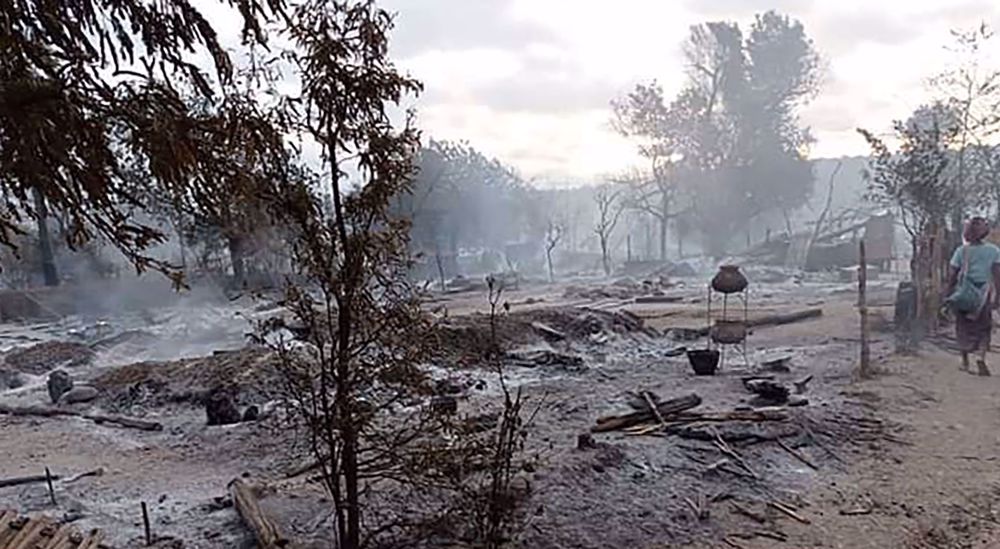


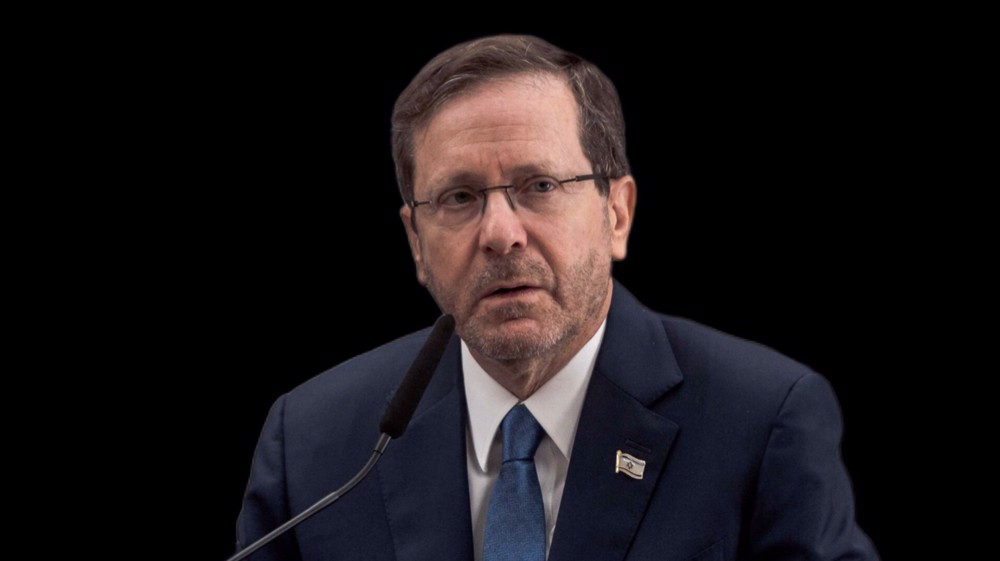





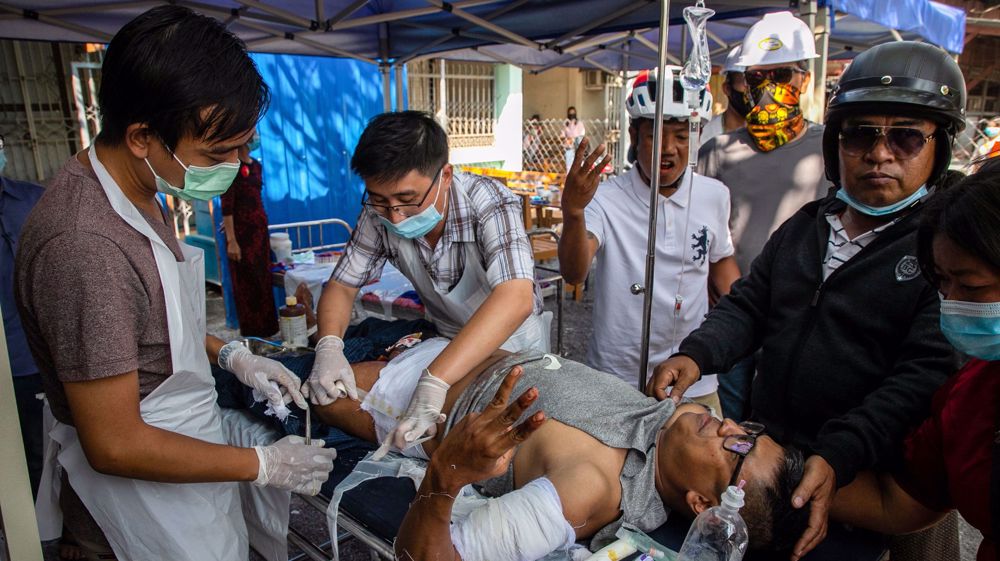
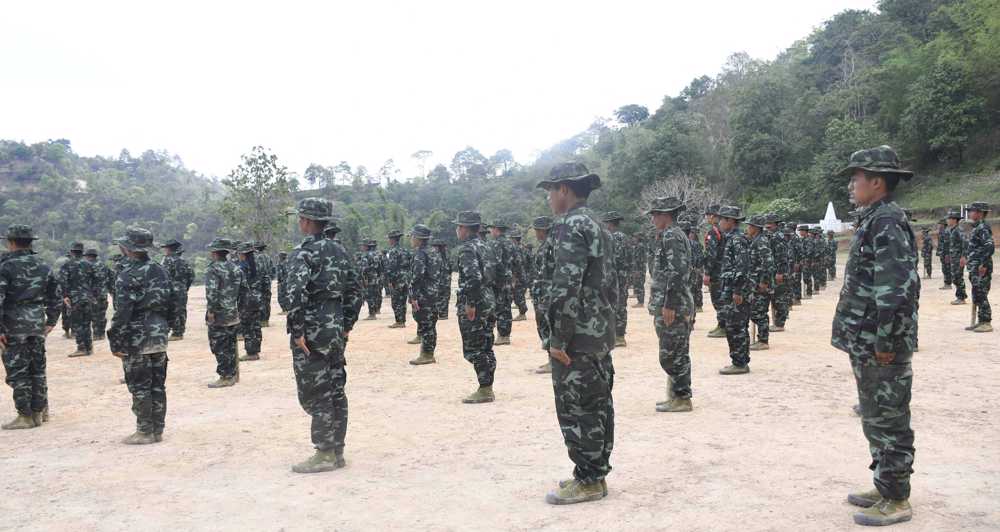
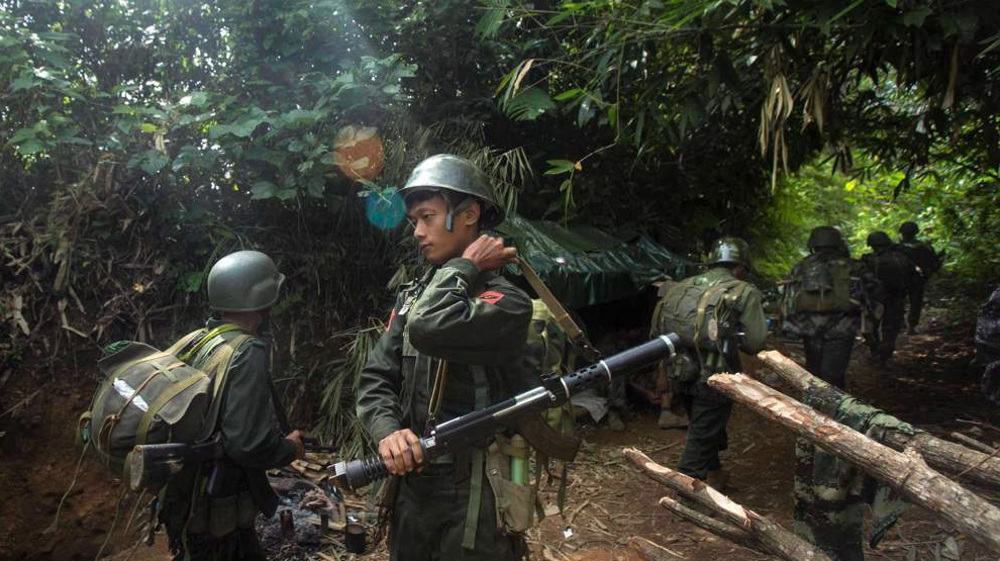
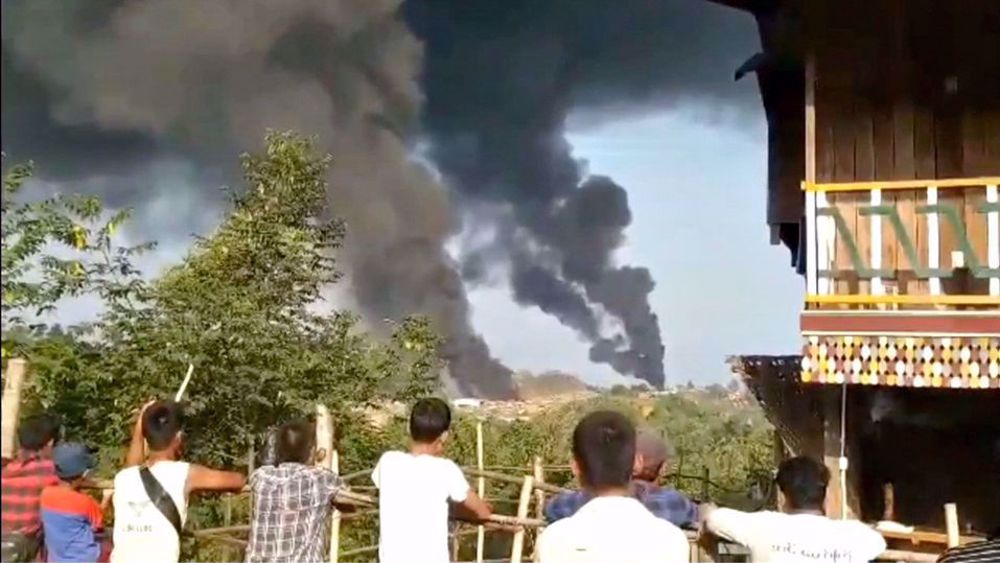

 This makes it easy to access the Press TV website
This makes it easy to access the Press TV website